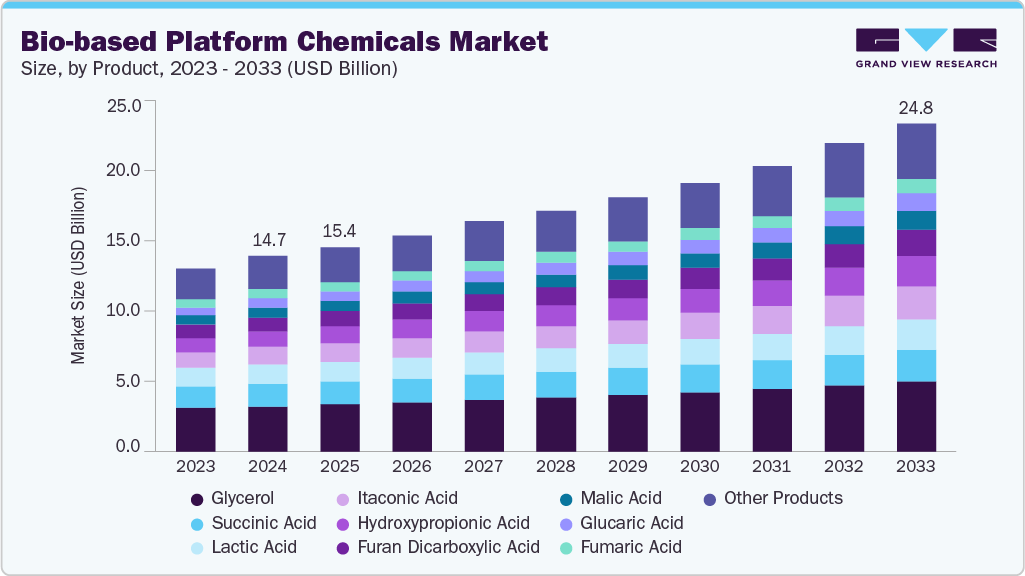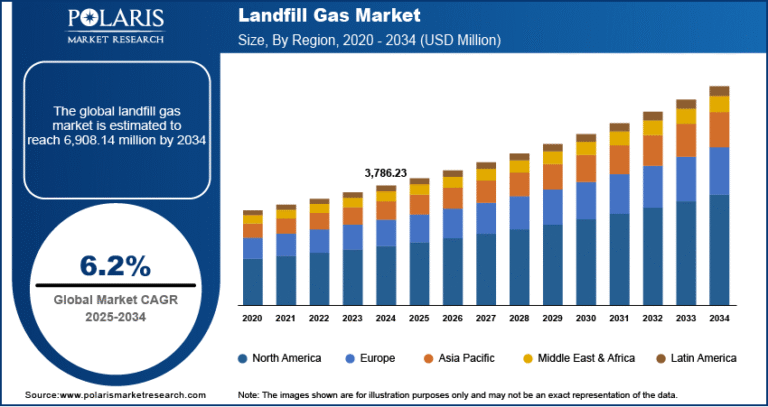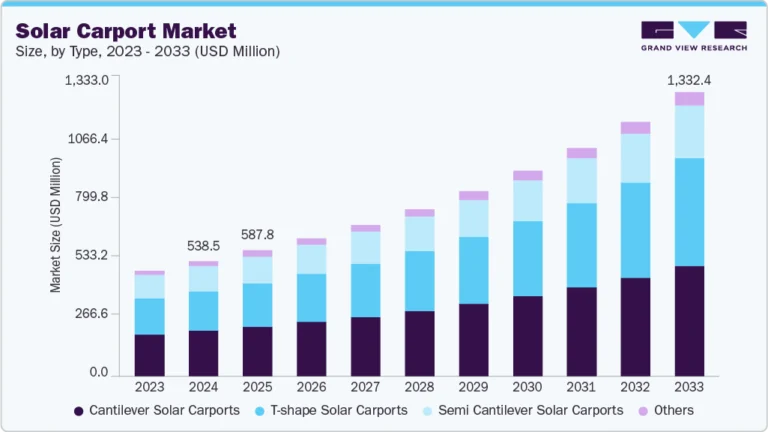Bio-based Platform Chemicals Market Size, Share & Trends Analysis Report And Segment Forecasts, 2025 – 2033

The global bio-based platform chemicals market size was estimated at USD 14.7 billion in 2024 and is projected to reach USD 24.8 billion by 2033, growing at a CAGR of 5.8% from 2025 to 2033. The growing demand for sustainable and eco-friendly alternatives drives interest in producing chemicals from biomass, a renewable feedstock.
Key Market Trends & Insights
- The Asia Pacific region led the global bio-based platform chemicals market in 2024, accounting for a 33.1% share.
- The bio-based platform chemicals market in China held a substantial share of the APAC market in 2023.
- By product, the glycerol bio-based platform chemicals segment dominated with a market share of 23.5% in 2024.
Market Size & Forecast
- 2024 Market Size: USD 14.7 Billion
- 2033 Projected Market Size: USD 24.8 Billion
- CAGR (2025-2033): 5.8%
- Asia Pacific: Largest market in 2024
- Europe: Fastest growing market
Request a free sample copy or view report summary: https://www.grandviewresearch.com/industry-analysis/bio-based-platform-chemicals-market/request/rs1
To compete effectively with fossil-based refineries, integrated biorefineries are increasingly being utilized to upgrade biomass using a range of feedstocks and conversion technologies. These biorefineries produce biofuels and bio-based platform chemicals, which are gaining significant traction in the global market. Key platform chemicals are in high demand due to their versatility and potential to replace a wide array of fossil-derived industrial chemicals. Their use as building blocks for a broad spectrum of downstream products underscores their growing importance in transitioning to a bio-based economy. Developing integrated biorefinery systems into the current industrial infrastructure is crucial in establishing a successful bio-based chemical industry. By advancing biorefinery technologies, it becomes possible to efficiently and cost-effectively convert biological raw materials into a wide array of bio-based products.
The transportation sector is the primary driver for advancing and implementing new biorefinery technologies. Meeting regulatory mandates for renewable energy, particularly in the short to medium term, requires significant volumes of renewable fuels. Second-generation biofuels are expected to play a key role in addressing this demand, especially for sectors like heavy-duty road transport and aviation, where alternatives to fossil fuels are limited.
Succinic acid (SA) is recognized as one of the leading platform chemicals due to its broad range of applications across multiple industries. Its molecular structure, featuring two terminal carboxylic acid groups, makes it highly versatile and suitable for conversion into numerous valuable derivatives. The biological production of SA presents a cleaner and more sustainable alternative to traditional methods, with the added benefit of helping to mitigate climate change by capturing carbon dioxide, a major greenhouse gas. This bio-based approach recycles renewable carbon from biomass (an indirect form of CO₂) and directly fixes CO₂ into SA, offering a carbon-negative production pathway that can significantly reduce atmospheric CO₂ levels. These compelling environmental and economic advantages drive a shift from fossil-based to microbial production of SA, a trend supported by several commercial-scale bio-SA facilities established in recent years.






